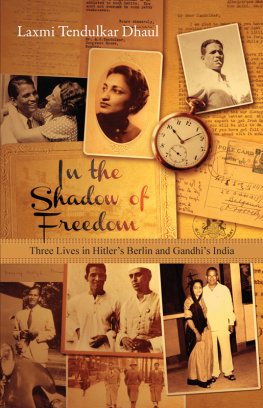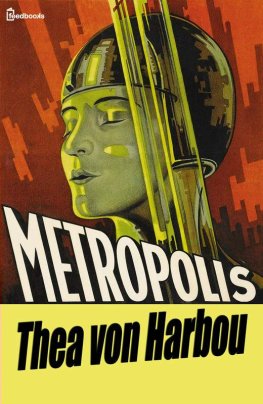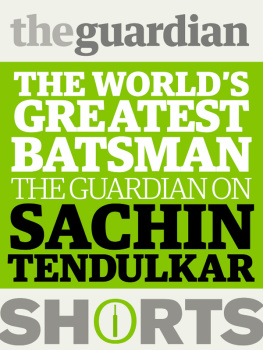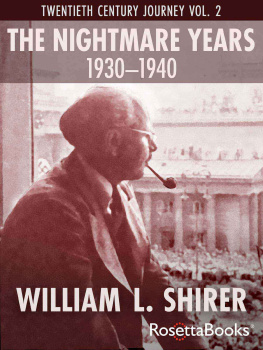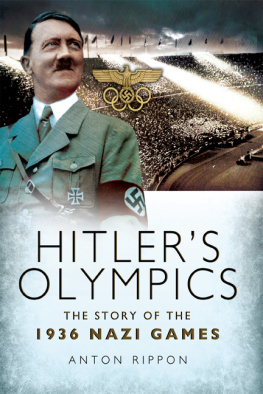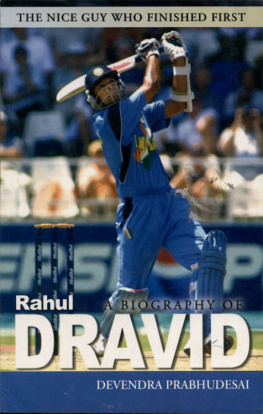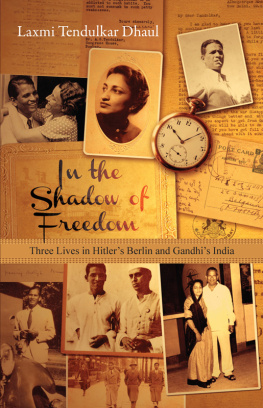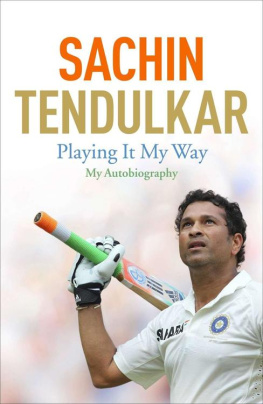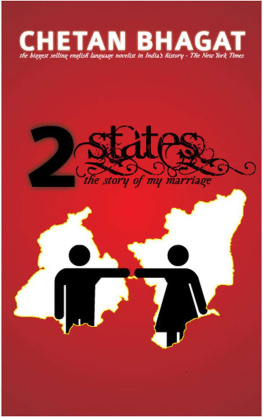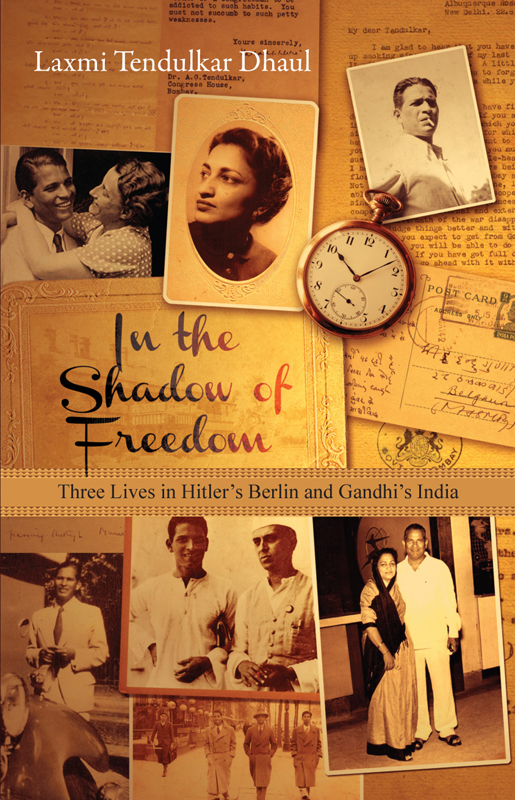

ZUBAAN
An imprint of Kali for Women
128B Shahpur Jat
1st Floor
New Delhi 110 049
Email:
www.zubaanbooks.com
First published by Zubaan 2013
Copyright Laxmi Tendulkar Dhaul
All rights reserved
10 9 8 7 6 5 4 3 2 1
eBook ISBN: 9789383074273
Print source ISBN: 9789381017661
This eBook is DRM-free.
Zubaan is an independent feminist publishing house based in New Delhi, India, with a strong academic and general list. It was set up as an imprint of the well known feminist house Kali for Women and carries forward Kalis tradition of publishing world quality books to high editorial and production standards. Zubaan means tongue, voice, language, speech in Hindustani. Zubaan is a non-profit publisher, working in the areas of the humanities and social sciences, as well as in fiction, general non-fiction, and books for young adults that celebrate difference, diversity and equality, especially for and about the children of India and South Asia under its imprint Young Zubaan.
Typeset in Bembo 11/14 by Jojy Philip, New Delhi 110 015
Printed at Raj Press, R-3 Inderpuri, New Delhi 110 012
Contents
In loving memory of my parents
Indumati and Ayi Ganpat Tendulkar
Foreword
Not until the publication of Patrick McGilligans monumental biography of Fritz Lang in 1997 had the name of Ayi Tendulkar rung a bell among experts of German cinema during the Weimar Republic (19181933), or even in the community of scholars who have done extensive research on Indians living in Germany between the two world wars. The latter included students, radical activists engaged in the cause of Indian independence, artists, filmmakers and a handful of businessmen. Some of them are well-known: the communists M.N. Roy and Virendranath Chattopadhya, the socialist leader Ram Manohar Lohia, former President Zakir Hussain, filmmakers Himansu Rai and V. Shantaram. Ayi Tendulkar does not figure in the list.
This is odd, to say the least, for Tendulkar had forged strong links with institutions and personalities that shaped Germanys tumultuous politics and culture in the decade preceding the triumph of Nazism. On the strength of his proximity to leaders of the freedom struggle in his early youth Mahatma Gandhi, Jawaharlal Nehru and Vallabhbhai Patel he wrote extensively on Indian affairs for influential left-wing publications in Berlin. He also enjoyed a reputation in the citys intellectual circles for his scholarly achievements and, not least, attracted much attention for his love affair with, and subsequent marriage to Thea von Harbou, wife and collaborator of Fritz Lang, arguably the most talented film director during the Weimar era.
Now, fifteen years after the publication of McGilligans biography, Tendulkars daughter, Laxmi Dhaul has provided an exhaustive, sensitive and often moving account of the life of this brilliant and complex man. She tracks the trajectory of his life through its many, colourful vicissitudes before, during and after his sojourn in Europe by drawing on recollections of family members and her research in archives of the period available in Germany and India.
My own introduction to her is a story in itself. The reference to Tendulkar in the McGilligan biography which I read only two years ago ignited my curiosity, not least because, as I was rapidly to discover, our two families had known each other. My father instantly recalled Tendulkar down to the last detail of his sartorial elegance, his swashbuckling manner, his huge, Mercedes car and, above all, the way he courted and married a lovely and feisty girl named Indumati Gunaji. My paternal grandfather knew the Gunajis well in Belgaum and was full of admiration for Indumati and her sister because they had a mind of their own a rarity in women in that citys deeply conservative society. In no time at all I managed to contact Laxmi, who took me into confidence about her project to let the world know a thing or two about her exceptionally gifted parents.
My own interest in the cultural and political scene in Berlin during the Weimar years took an altogether different turn after Laxmi spoke to me in some detail about her fathers relationship with Thea von Harbou. Their vastly different backgrounds of race and class, not to speak of the big difference in their ages (he was 17 years younger than her), lent the relationship, forged as it was in the wake of Adolf Hitlers rise to power, a magnetic quality. And so it is that thanks to Laxmi I began to explore the life of von Harbou to discover some clues about her fascination for the ruggedly handsome, debonair, dark-skinned Indian.
The Patrick McGilligan biography of Fritz Lang provided the clues in ample measure. So did a website dedicated to her. Indeed, in recent years there has been a renewed interest in her life and achievements among scholars specialising in film studies. Its main merit lies in the fact that much of the harsh criticism aimed at her by writers of an earlier generation particularly Siegfried Kracauer and Lotte Eisner for promoting an exclusivist idea of Germany through her novels and film-scripts and for her allegedly ambivalent attitude towards the Nazi regime has been placed in a less contentious context. All the same, the Thea von Harbou that emerges from recent literature still retains something of the aura of mystery that surrounded her in her lifetime.
Born on 27 December 1888, Thea had a privileged childhood despite the limited financial means of her Prussian family that belonged to the minor nobility. She studied in a convent and with private tutors who taught her several languages, introduced her to the world of arts and letters, and nurtured her precocious talents as a writer and a connoisseur of music. She earned the sobriquet of a child prodigy when a magazine published a short story of hers when she was barely thirteen. At that same age, she privately published a volume of poetry too.
However, determined to earn her own living, she chose, when she was just eighteen, to become an actress, much against the wishes of her father. That is when she met and subsequently married an actor named Rudolf Klein-Rogge. The couple, after nearly a decade of performing on stage, moved to Berlin where Thea devoted her time and energy exclusively to writing. She drew her inspiration from classic German myths and legends. Her novels, as M C Gilligan remarks, became patriotic and morale-boosting, urging women to sacrifice and duty while promoting the eternal glory of the fatherland.
Theas long and distinguished career as a scriptwriter began when the director Joe May decided to adapt one of her novels for the screen. It was May who introduced her to Fritz Lang in early 1919. The two hit it off instantly, not least on account of their shared interest in India. Tragedy marked their love affair. Langs wife, Lisa Rosenthal, a Russian Jew, shot herself with her husbands pistol after she found him and von Harbou in a clinch. To this day, it is not clear whether this was a case of suicide or murder.
Lang and von Harbou got married in Berlin in August 1922. A year earlier they had worked together on a screen-play for a film entitled The Indian Tomb. It reflected their common passion for Indian culture, or rather for an extremely exotic idea of Indian culture. Over the next decade, she scripted all the films he directed. Many were hailed then, and continue to be hailed today, as the most outstanding examples of German Expressionism. They include Dr. Mabuse, the Gambler in two parts, The Nibelungen also in two parts, Metropolis, The Spy, Woman in the Moon and M.

